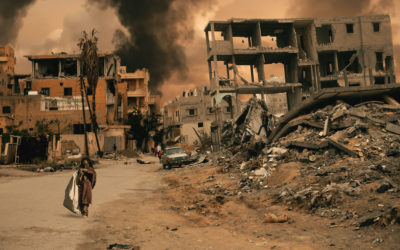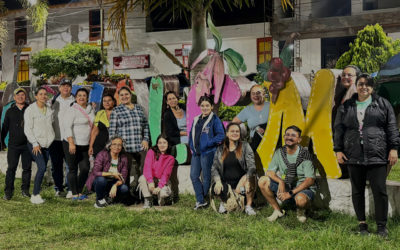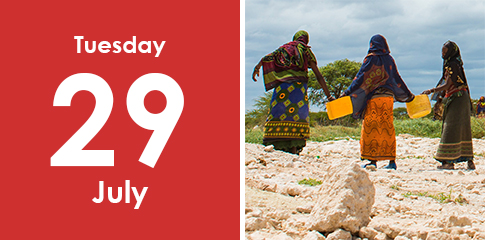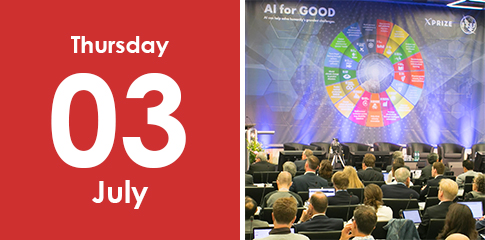To complete their studies, Development Policies and Practices, students must write a thesis and prepare a presentation on a topic linked to their work and employer. Bahja Hassan, who received her Diploma in February 2024, works for Save the Children as a Gender Equality and Gender Based Violence (GBV) Coordinator in Somalia. The topic of her thesis was “Enhancing Access to Justice for Gender-Based Violence Survivors in Puntland: A Journey of Resilience, Challenges and Prospects”. Her findings found that addressing GBV in Puntland required multifaceted interventions. Find out more about her thesis and its findings in the article below.
Bahja’s research explores the multifaceted landscape of gender-based violence (GBV) in the Puntland State of Somalia. It highlights the journey toward justice within cultural complexities and institutional hurdles. Through qualitative research by engaging stakeholders, the paper interprets institutional capacity gaps, the dominance of customary systems, and the role of partners in fostering awareness and access to justice. It underlines the significance of legal reforms, heightened awareness, and collaboration efforts among service providers, including legal aid institutions, in addressing GBV. Finally, it portrays the pursuit of justice for GBV survivors in Puntland as a narrative of resilience, challenges, and hope, emphasising the joint effort required for a future where everyone is treated with dignity and respect.
Introduction
Puntland, situated within Somalia’s historical context of conflict and instability, grapples with entrenched gender inequalities and GBV. This paper precisely examines the institutional framework, customary dynamics, service provisions, and stakeholder engagement in addressing GBV in Puntland. It identifies critical gaps and proposes actionable recommendations to enhance the response to GBV, emphasising the necessary collaboration interventions.
Historical Context and Cultural Dynamics
Somalia’s rich cultural heritage intertwines with the aftermath of prolonged conflict, resulting in vulnerabilities for women and girls. The collapse of central governance in the early 1990s plunged the nation into turmoil, laying the groundwork for the proliferation of gender inequalities and GBV. Puntland, established in 1998 as an autonomous state, patriarchal norms and cultural practices intersect with efforts towards stability and regional identity, creating a complex environment for addressing GBV. The study findings are highlighted below.
Institutional Framework and Capacity Gaps
Puntland’s legal framework, which encompasses Islamic Sharia, statutory law, and customary practices, offers both promise and challenges in addressing GBV. Despite the mandated structures like the GBV desks, institutional capacity gaps hinder effective response, especially in remote areas. Shortages of resources, equipment, and limited trained personnel sums up the need for comprehensive reforms and resource allocation to strengthen the justice system.
Dominance of Customary Systems
The prevalence of customary and informal justice systems complicates GBV mitigation, perpetuating mistrust in formal mechanisms. From the point of view of legal assistance and access to justice, the research revealed the dominance of the traditional system over statutory law. Despite the existence of the Sexual Offense Act adopted in 2016, many cases are addressed in customary justice and are based on the punishment declared by traditional elders. Those sanctions include marrying a victim in case of rape or punishing the perpetrator of violence by payment of financial compensation to the family of the victim. On the other hand, various GBV forms, such as domestic violence, child marriage and female genital mutilation (FGM), are not considered violence at all and are not usually reported. Traditional clans are involved only when there is a severe physical injury associated with the GBV. Comprehensive legal reforms and awareness campaigns are vital to curing the dominance of customary systems and instilling trust in formal justice.
One-stop Centres: Advantages and Limitations
Disparities in accessing one-stop centres persist between urban and rural areas with limited resources and timeframe, highlighting sustainability risk due to project-based funding and the need for long-term financial planning. Inclusivity challenges for GBV victims with disabilities necessitate tailored services.
Public Awareness on Seeking Justice and Support Services
Among other constraints, there is a lack of connection between legal aid providers and local communities. Stakeholders propose to shift the approach and encourage legal aid providers to educate communities and increase awareness about their work and services. Raising awareness about existing laws related to sexual and gender-based violence (SGBV) is an important step to support the GBV responses. Community engagements, media campaigns and educational programmes can empower survivors and encourage reporting. Additionally, partnerships with local organisations and religious leaders can amplify the awareness efforts.
Role of Stakeholders and Civil Society
Stakeholders, encompassing government agencies, NGOs, legal aid providers and the media, play a pivotal role in GBV mitigation through awareness campaigns and advocacy. Enhanced coordination and collaboration among stakeholders are essential for a cohesive response.
Conclusion
The paper concludes with actionable recommendations, including staff training on specialised services, legal reforms, expanded access to formal justice in rural areas, and allocation of financial resources, which are crucial to sustainably supporting GBV survivors and justice access initiatives.
In summary, addressing GBV in Puntland requires multifaceted interventions encompassing institutional reforms, community education and stakeholder collaboration. By addressing institutional capacity gaps and fostering public awareness, strides can be made towards ensuring justice and support for GBV survivors in Puntland. The collective commitment and collaboration of stakeholders are imperative in realising a future where every survivor finds solace in the arms of justice.
By Bahja Hassan, Alumna of the Development Practices and Policies Programme 2023-2024.









Congratulations Bahja